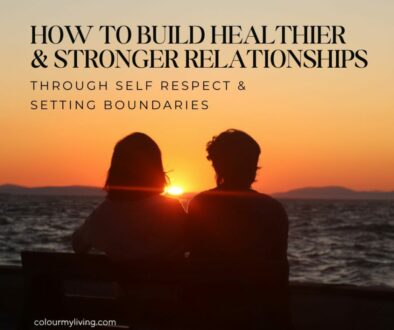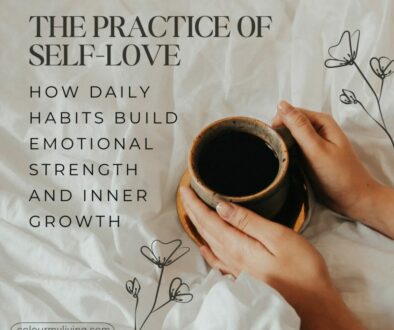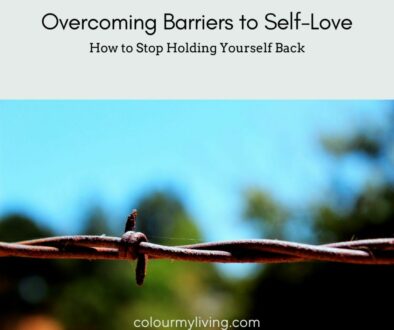Staying Calm, Keeping Sane – 10 simple things you can do to not be overwhelmed
Here are practical and accessible strategies for managing stress and navigating the complexities of daily life. Whether you’re grappling with work pressures, personal challenges, or just the relentless pace of modern living, use these ten straightforward and effective tips to help you stay grounded and composed.
These tips are designed to empower you to take control of your well-being and find peace amidst the turmoil.
So here’s what we recommend you do:
1. Limit your news intake
In times like these, it’s so easy to leave the TV on and the news on its continuous cycle. We mistakenly believe that knowing more means that we’ll be better prepared. Unfortunately while it may be true that you’ll learn more about what’s happening within your own country (and outside) with details of numbers and statistics, even projections and how well prepared your nation’s health system may be, it may actually be detrimental to your own anxiety and mental health.
So here’s what we recommend: Watch or listen to the news for a finite amount of time. 15 minutes or 30 minutes at the most, then physically either change the channel or turn off the news. You’re also likely to encounter significant over-sharing of information on social media – scroll on by.
Focus on the good and the positive. Trust that the front liners in your country are doing their best and most amazing job. Your only job here is to stay safe and stay calm.

2. Talk to someone virtually
We have all been asked to be physically isolated to help stop the spread of this disease, but for people who are ‘no good’ on their own, for whatever reason, the lack of contact is a serious issue. That said, it is always nice to catch up with an old friend, talk to someone, ask how a relative, friend or neighbour is doing.
So while you may not be able to hang out physically, or meet up at your nearest Starbucks, we are all tremendously lucky to live in this age of technology that allows us to meet virtually.
So here’s what we recommend: Make a breakfast, lunch or dinner appointment with a friend or even a whole group of friends. Meet up virtually, use your phone or computer or tablet. Use the tools already available to you – Skype, Facetime, Whatsapp, Wechat, Facebook Messenger – anything that you are familiar with or can get hold off.

3. Spend some time outside in the open
In some countries leaving the house is expressly forbidden, and for good reason. But if you can, and have the opportunity to do so, spend a little time outside in nature. Whether it’s a walk around your garden, within the confines of your own space, or a little time on your balcony.
So here’s what we recommend: If you are allowed out for a walk or a cycle ride, do so. As you immerse yourself in the quiet and the solitude of the world as it is right now, look at and appreciate the scenery and potentially the silence around you.
Focus on the changing seasons, if you’re in the Northern hemisphere, spring is upon us; if you’re down South, the beautiful Autumn colours are coming your way. And if you’re in the tropics, well, revel in the beautiful sunshine and warmth of each day.
Keep your distance to people from outside your household, but do go out and appreciate your time outdoors.

4. Focus on yourself
A shift in all of our lives has occurred, where it used to be that every minute of every day was scheduled – dashing off to work, getting kids ready for school, keeping the house clean and tidy – these days things are a bit more fluid, a little more laid back and hopefully calmer in the sense of daily demands. That said, having the kids at home all day does give rise to different demands and challenges.
So here’s what we recommend: Find some time each day, to focus on yourself. Whether it’s 15 minutes in meditation, following an online yoga class, or even just some time out with a book, take some time to be by yourself, with yourself.
If your children are younger, you may need to schedule this alone time early in the morning and perhaps later in the evening when they have gone to bed. Either way, taking time for yourself allows you the important task of regenerating your sense of self and renewing your energy levels.

5. Be present
The practise of being present is never quite as fully understood as until one has time to pause, take a breath and reflect. To be fully present in each moment means being able to fully and completely devote your entire attention to the present activity.
It is so easy to be distracted, to think about what the next meal is going to be, or what else is next on your to-do list, yet being present is not actually a luxury, it is a necessity to force ourselves to focus solely on one thing at a time, to do one thing at a time.
So here’s what we recommend: Whatever you are doing or intend to do, do it with your full and utmost focus. It is easy to be distracted, to think of other things. Our modern lives have set us up completely to reward efficiency, effectiveness, results and none more so than being able to accomplish most in the least time possible.
Yet it has done little for our mental health, well-being and peace of mind.
Thich Nhat Hanh said, “When you walk, arrive with every step”.
So in that vein, in everything that you do, simply focus on doing it – One thing at a time, each moment in time. Slow down, let go of that to-do list, simply take your time in all that you do.

6. Breathe
Have you ever thought about your breathing? If you practise yoga or meditation, it’s likely that it is one of the key focuses of each session. Yet, throughout the day, something as essential as our breathing is simply relegated to its own automation. After all, why think about it when it just works.
Still focussing on breathing is an amazing practise to keep calm, lower your heart rate, to simply tune in to your own body and what it does.
So here’s what we recommend: For a few minutes each day, focus purposefully on your breath. Notice drawing in your breath, notice exhaling. If you can, slow down your breathing. Count to 5 as you breathe in, then hold your breath in for another 5 counts before releasing your breath slowly while also counting to 5.
A few rounds of doing this allows you to slow down your racing thoughts, calm your mind and body. You can do this while sitting still or while walking, but the idea is to primarily focus simply on your breathing.
If you are already familiar with the practise of watching your breath, perhaps you might like to learn and try out breathing exercises with yoga mudras. As you become more in tune and attuned to your breathing, you may notice that by practising your breath work with mudras will allow you to learn to control and direct your breath even more purposefully.

7. Eat right
It is important to eat right and not skip meals. Eat proper food – if you need ideas or inspiration to cook, you can simply type in your ingredients list in to Google followed by the word ‘recipe’. You’re likely to be inundated with suggestions as to what is possible to cook with what you have.
So here’s what we recommend: If you are finding it more tedious that usual to cook every day, then bulk cook if you can find the ingredients and freeze it. Things like chilli or bolognese do well frozen and are versatile enough to be used in a variety of different ways.
Don’t skip meals no matter how tempting it may be to get lazy. In the same vein, don’t just keep stuffing yourself with junk food while binge-watching Netflix.

8. Drink enough
Right up there with eating right is making sure you drink enough water, stay hydrated. It may seem pointless when you’re just sat at home, not doing much but dehydration is real and if you drink of choice is mainly tea or coffee, know that they are diuretics so will help dehydrate you further.
So here’s what we recommend: Fill a bottle of water and keep it nearby, making sure you drink at least 2 litres a day. If you have kids, make sure that each of them have their own water bottle topped up.

9. Volunteer if you can
While many of us are healthy and able, a good number of the older folk are more vulnerable and of course there are those who are immuno-compromised. If you are well and able, do extend a helping hand. Whether it’s getting shopping and supplies, helping to get prescriptions, or simply picking up the phone to call or chat via many of the video services.
So here’s what we recommend: Extend a helping hand when/where you can. But remember to keep safe distance and of course, take care of your own health and hygiene as a priority. Gloves, mask, wipes, use them. Leave shopping and deliveries on the front door and avoid direct contact.
Join a local group on social media, or get in touch directly with vulnerable friends or family and offer your help. You don’t have to go out of your way every day, but perhaps let them know when you’re next going shopping and offer to help.
10. Start that project
Now seems like the perfect time to start that project. You know, that one that has been on the back burner when everything was busy and stressful. Learn a new language, work in the garden, start knitting or crochet, try your hand at painting, learn that instrument, pick up a new hobby. Spend some time today and look in to something new.
So here’s what we recommend: Start with what you have first. It may be a difficult time to start going out to buy supplies, but check out Youtube videos or Pinterest boards, do some research to start with.
Get in touch with interest groups and ask for help or advice. Make use of the technology available – apps, websites, online courses – it’s all out there and a lot of it is free.

We are living in unprecedented times, but we are lucky that technology is able to close the gaps left by physical distance. Take care of yourself and your loved ones. Stay safe and be kind.














